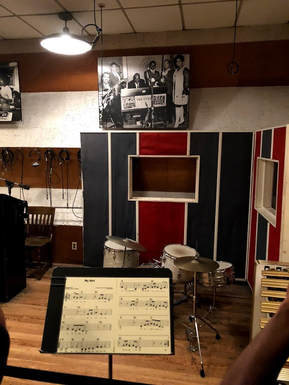I was met with an extremely friendly smile as I stepped into an Uber to get groceries two days ago. My driver, Michael, was both affable and extremely open. He immediately proceeded to ask me if I was a college student and what I was studying. I told him I went to school in North Carolina and was studying economics and computer science. I expected the standard “Cool things to study!”, but Michael began imploring me about my thoughts on Detroit from an economic perspective. I gave him some of my thoughts and asked him what he thought as well. We talked about a variety of things including the power of language (he noticed that I used the term “affordable housing” while he used the term “projects), development in Detroit, and gentrification. Michael told me he would classify himself as lower-middle class, and he felt that development was helping those of lower socioeconomic status. He mentioned that much of the housing development in Midtown Detroit was affordable housing and that Midtown was becoming “a place for everyone”.
I kept pondering this conversation as I read an article titled “$32M apartment development coming to Midtown”. The author, Jennifer Chambers, writes about 84 apartments coming to the Sugar Hill Historic District. The project will attempt to “preserve and revitalize historic buildings” in the area, and a fifth of the housing units will be affordable homes targeted at those making $26,000 to $40,000 per year. I wondered if Michael was referencing projects like this one when asserting that recent development in Midtown Detroit made room for everyone. I think people generally tend to characterize development in Detroit in two ways: it’s either necessary for growth or it’s completely unfair to those of lower socioeconomic class. I believe it’s important to hear perspectives from those who experience the effects of social/economic change, and hearing Michael’s perspective as someone of relatively low socioeconomic class was no different. I felt myself more willing to trust him (rather than someone who would more obviously benefit from development/gentrification) because he was there to experience something that others could only observe and write about. The evidence in the article further solidified my trust in Michael’s words, but I also remembered recently talking to a resident in my apartment building who claimed that downtown Detroit was much more susceptible to gentrification (especially if Ford begins buying property and developing) and that my perspective was limited. I ended up reading many studies that confirmed what she said. In my opinion, the article I read is evidence that certain development in Detroit is attempting to both revitalize the city and remain equitable for all, but it's certainly not evidence that all development in Detroit is the same way. I don’t think you can classify development in Detroit in any one way, but my knowledge on the issue is comprised of an ever-growing mosaic of perspectives. I’m grateful that by being here and involving myself in the community, I’m able to hear from people of all walks of life.
I kept pondering this conversation as I read an article titled “$32M apartment development coming to Midtown”. The author, Jennifer Chambers, writes about 84 apartments coming to the Sugar Hill Historic District. The project will attempt to “preserve and revitalize historic buildings” in the area, and a fifth of the housing units will be affordable homes targeted at those making $26,000 to $40,000 per year. I wondered if Michael was referencing projects like this one when asserting that recent development in Midtown Detroit made room for everyone. I think people generally tend to characterize development in Detroit in two ways: it’s either necessary for growth or it’s completely unfair to those of lower socioeconomic class. I believe it’s important to hear perspectives from those who experience the effects of social/economic change, and hearing Michael’s perspective as someone of relatively low socioeconomic class was no different. I felt myself more willing to trust him (rather than someone who would more obviously benefit from development/gentrification) because he was there to experience something that others could only observe and write about. The evidence in the article further solidified my trust in Michael’s words, but I also remembered recently talking to a resident in my apartment building who claimed that downtown Detroit was much more susceptible to gentrification (especially if Ford begins buying property and developing) and that my perspective was limited. I ended up reading many studies that confirmed what she said. In my opinion, the article I read is evidence that certain development in Detroit is attempting to both revitalize the city and remain equitable for all, but it's certainly not evidence that all development in Detroit is the same way. I don’t think you can classify development in Detroit in any one way, but my knowledge on the issue is comprised of an ever-growing mosaic of perspectives. I’m grateful that by being here and involving myself in the community, I’m able to hear from people of all walks of life.
Motown Museum!

 RSS Feed
RSS Feed
